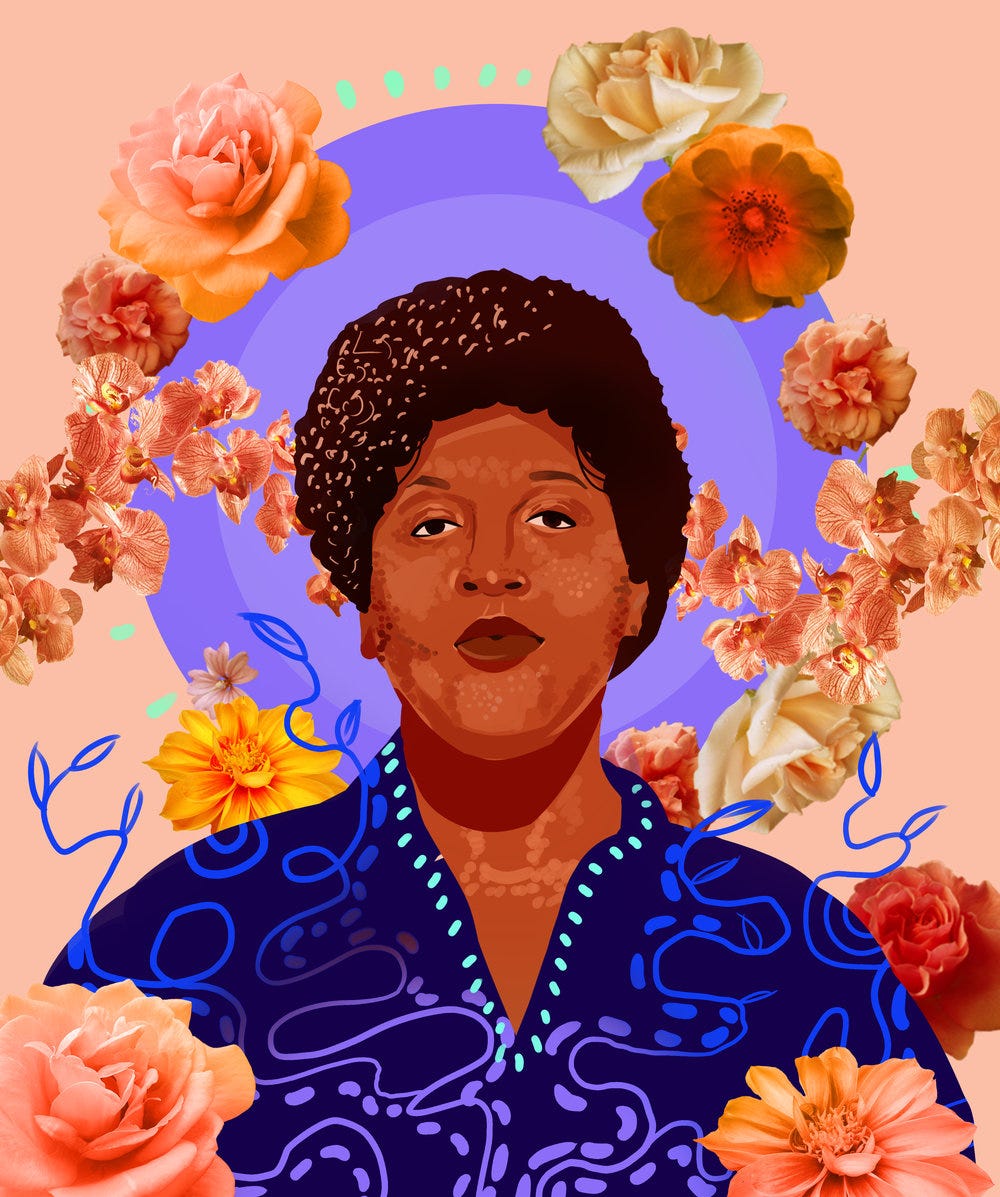My Cup Is Moldy
Practicing Radical Self-Care When the World Keeps Asking for More
Between life lifing, a global pandemic, and job layoffs, something clicked in me recently. I got to put me first. I shouldn’t take pride in never asking for help, overextending myself, always being the one to show up for others, or being a little blind & deaf when I peep foul play from people that I love. But here I am, basking in these very poor habits which bring me routine misery. I don’t want to be a healer, I don’t want to be the person you call when you need a hand, I don’t want to be the one that changes the world…because I’m tired.
My cup ain’t just empty, it’s moldy from years of leaks & stagnation.
Let’s be honest: the term “self-care” has been hijacked. It’s been flattened into bubble baths, beauty hauls, solo travel, and hashtags. But radical self-care? That’s a different beast altogether. It’s not cute. It’s not aesthetic. It’s not easy to market. It’s choosing yourself even when it disappoints the ones that matter most. It’s boundaries that disrupt codependent cycles. It’s protest. Silence. And sometimes, it’s straight-up disappearing so you can remember who you were before everyone else had access to you.
What Is Radical Self-Care?
Coined and modeled by Black feminist, free thinkers like Audre Lorde, radical self-care is not about indulgence… it’s about survival. Lorde famously said, “Caring for myself is not self-indulgence, it is self-preservation, and that is an act of political warfare.” For those of us living at the intersection of gender, race, capitalism, and generational trauma with a side of caregiving, radical self-care becomes a sacred rebellion.
It is the practice of tuning in when the world demands you tune out your needs. It is canceling plans without guilt. It is grieving your own neglect. It is unlearning the belief that your worth is tied to how much you give.
Radical self-care looks like disengaging from conversations that drain you. It means muting people you love because you don’t have the capacity. It’s logging off without an announcement. It’s letting the group chat go unanswered. It’s telling your job “no” without a 3-paragraph justification. It is a resistance to burnout culture, to the expectation that you must always be accessible, helpful, agreeable, or strong.
Some of us got cast in the role of “the strong one” so early, we forgot it was a script. Somewhere between childhood survival and adulthood performance, we began to internalize that rest is weakness, softness is luxury, and asking for help is shameful. And the real gag? Half the people who benefit from your strength wouldn’t last a DAY in your shoes.
I’m here to say: you can be strong and still need rest. You can be wise and still need guidance. You can be loving and still choose solitude.
You’re allowed to close the curtains, turn off the phone, and not explain yourself.
Radical self-care gives you permission to protest. Not with signs and chants (though that too), but with your disengagement. With your silence. With your refusal to participate in your own exploitation.
You don’t owe anyone endless access to your time, energy, or empathy. You can love people and still opt out of their chaos. You can be a good friend and still say “not today.” You can be ambitious and still cry an ugly cry at the end of a workday. You are entitled to being a full human being, not just a tool for other people’s healing.
Radical self-care teaches you to identify who depletes your spirit and who replenishes it. It urges you to audit not just your calendar, but your commitments. Who are you showing up for, and at what cost?
Here are 3 ways I’m attempting to practice radical self-care:
Audit Your Access Points
Make a list of who and what has constant access to you, texts, Slack, DMs, late-night calls, emotional dumps. Then ask: who actually deserves that kind of access? Begin to tighten your boundaries and remove passive availability. Your peace should not be on an open floor plan.“No” Should Be the Final Answer
Not “maybe.” Not “I wish I could.” Just: no. Without guilt. Without over-explaining. No is a full sentence, and using it regularly is one of the most radical acts of self-preservation you can commit to.Create Rituals for Reconnection
Whether it’s listening to music full-blast, walking in silence, cooking your favorite meal without sharing, or staring at the ceiling, carve out time weekly to reconnect with you. Not the productive you. Not the helpful you. Just you. The version that exists outside of doing.
Radical self-care is not selfish- it’s sacred. And sometimes, saving yourself first is the most revolutionary thing you can do.



